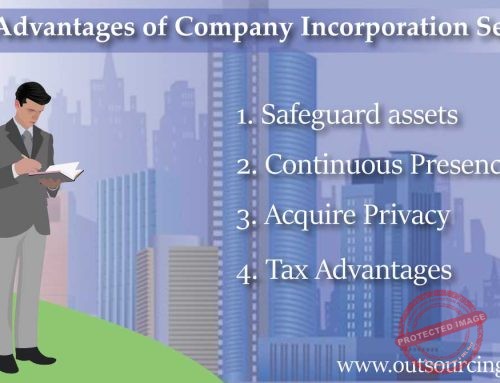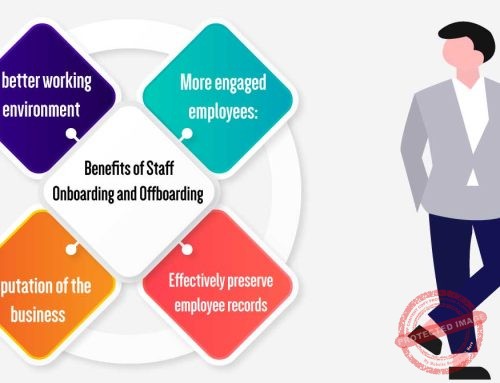Proper business registration provides several layers of legal protection to entrepreneurs and their operations. Firstly, it establishes the business as a separate legal entity, which can shield the owner’s assets from business liabilities.
For instance, if a business structured as an LLC or corporation incurs debts or is sued, the owner’s personal savings, property, and other assets are typically not at risk.
Formal registration can grant exclusive rights to the use of the business name in a particular jurisdiction, preventing others from operating under the same or a confusingly similar name.
Furthermore, proper registration ensures compliance with local, state, and federal laws, reducing the risk of penalties and legal issues arising from non-compliance.
Additionally, registered businesses can more easily secure contracts, loans, and business licenses, as partners and lenders often require proof of legitimate registration.
According to the Global Entrepreneurship Monitor, the BD has 2 million entrepreneurs, accounting for around 16% of the adult workforce.
What Are the Tax Implications of Your Business Registration?
The type of business registration chosen by an entrepreneur can significantly impact their tax liabilities and obligations. Sole proprietorships and partnerships, for instance, are often considered “pass-through” entities.
This means that the business’s income is reported on the owner’s tax return, with taxes being paid at the individual’s tax rate. This approach avoids double taxation but doesn’t provide many of the tax benefits or protections that other structures might offer.
Conversely, corporations are treated as separate tax entities, leading to corporate income being taxed at the corporate rate. Owners or shareholders then pay personal taxes on dividends or salaries, which can result in double taxation.
However, corporations can benefit from certain deductions and incentives not available to other structures. Limited Liability Companies (LLCs) offer flexibility, as they can choose to be taxed like sole proprietorships, partnerships, or corporations.
Therefore, the decision on business registration should be made with careful consideration of tax ramifications, ideally with the guidance of a tax professional. Each business structure also carries unique implications for sales tax, employment tax, and more.
7 Common Benefits of Business Registration
Registering a business is a vital step for entrepreneurs, and it comes with a range of benefits. Here’s a breakdown of some of the primary advantages of business registration:
1. Legal Protection
Registering a business, especially as an LLC or corporation, protects the owner’s assets from business liabilities, ensuring personal properties, such as homes and savings, are safeguarded against business debts or legal actions.
2. Established Credibility
A registered business often commands more respect and trust from suppliers, customers, and partners. The act of registration conveys professionalism and a commitment to long-term operations.
3. Exclusive Use of Business Name
Registering your business typically means you secure the rights to that business name in your jurisdiction, preventing others from using the same or a very similar name.
4. Tax Advantages
Depending on the chosen business structure, entrepreneurs can take advantage of various tax deductions, incentives, and structures that can be financially beneficial.
5. Access to Financial Resources
Registered businesses are generally in a better position to secure loans from banks or attract potential investors, as formal registration lends credibility and offers potential lenders or investors more security.
6. Legal Compliance
Business registration ensures adherence to the laws of the land, helping businesses avoid potential legal troubles or penalties that can arise from operating without the necessary permits or licenses.
7. Expansion and Growth
A registered business finds it easier to expand, open new branches, or even enter into partnerships and mergers. Registration can also pave the way for franchising opportunities or the potential sale of the business in the future.
Estimate Cost of Business Registration
The cost of business registration varies widely based on location, the type of business entity being registered, and any additional requirements or licenses needed. Here’s a very general estimation table for business registration:
Business Entity
Estimated Cost
Notes
Sole Proprietor
$20 – $100
Typically the least expensive to set up.
Partnership
$50 – $200
Costs may vary based on agreement complexity.
LLC
$50 – $500
Highly variable; some states have higher fees.
Corporation (C/S)
$100 – $1,000
Cost varies by state and complexity of structure.
DBA (“Doing Business As”)
$10 – $100
Cost varies by state and complexity of structure.
Business Licenses
$50 – $500
Depends on the industry and locale.
Simple Business Registration Process
The process of business registration can vary based on jurisdiction and the type of business entity you’re setting up. However, here’s a simplified overview of the general steps involved in the business registration process:
- Choose a Business Name: Ensure the name is unique and not already in use or trademarked. Some jurisdictions also have specific naming conventions for certain types of business entities.
- Select a Business Structure: Decide on the most appropriate structure for your business, e.g., Sole Proprietorship, Partnership, LLC, Corporation, etc.
- Obtain an Employer Identification Number (EIN) or Tax ID: In many jurisdictions, this is necessary for tax purposes, hiring employees, and setting up a business bank account.
- Register the Business Name: This can be done at the state, regional, or local level, depending on the jurisdiction.
- Apply for Licenses and Permits: Depending on the nature of your business and where it’s located, you might need specific licenses or permits to operate legally.
- Open a Business Bank Account: To keep your personal and business finances separate, open a dedicated bank account for your business using your business name and EIN.
- Stay Compliant: Be aware of recurring obligations like annual report submissions, license renewals, and tax payments.
Top Mistakes to Avoid When Your Business Registration
Registering a business is a foundational step, and avoiding common pitfalls is essential for long-term success. Here are the top mistakes to steer clear of during business registration:
1. Choosing the Wrong Business Name
This isn’t just about uniqueness; it’s also about potential future growth. Registering a name that’s too niche can limit business expansion. Additionally, neglecting to check if the name infringes on existing trademarks can lead to legal challenges.
2. Overlooking Local Requirements
Each jurisdiction or region may have its specific registration requirements. Overlooking local ordinances, permits, or zoning regulations can result in non-compliance and penalties.
3. Selecting the Inappropriate Business Structure
The decision between sole proprietorship, partnership, LLC, or corporation, among others, impacts tax liabilities, personal asset protection, and business operations. A poor choice can have lasting consequences.
4. Neglecting Necessary Licenses and Permits
Beyond the essential business registration, many industries require additional permits or licenses to operate legally. Failing to secure these can lead to fines, legal challenges, or even forced business closure.
5. Not Seeking Professional Guidance
The intricacies of business registration, especially in areas like tax implications or legal structures, can be daunting. Avoiding expert advice from lawyers or accountants can result in overlooked opportunities or potential legal missteps.
Why is Business Registration for E-commerce Platforms Important?
Business registration for e-commerce platforms is paramount for several reasons. Firstly, it lends credibility to the online store, instilling trust among potential customers who are often wary of online scams. Registered businesses signal legitimacy and professionalism to consumers.
Additionally, proper registration safeguards the owner’s assets, separating them from business liabilities. This is crucial in cases of disputes or financial challenges, ensuring the owner’s personal properties remain untouched.
Moreover, registration ensures adherence to taxation and legal standards. As e-commerce platforms often cater to global audiences, being compliant with various tax regimes and international trade laws is essential.
Registering also facilitates business transactions such as securing bank loans, attracting investors, or even eventually selling the business. While e-commerce businesses may operate in virtual spaces, ensuring legality, building trust, and providing essential financial protections.
However, around 55% of individuals have launched a business at some time in their careers, with 26% starting two or more.
What Role Does Business Registration Play in Branding?
Business registration plays a pivotal role in branding, serving as the first step in establishing a business’s legal and public identity. Registering a unique business name ensures exclusivity, preventing others from using the same or a similar name, thereby avoiding market confusion.
Furthermore, a legally registered firm increases the trust of the brand since consumers frequently equate official registration with legality and professionalism. This exclusivity strengthens the brand’s standing in the market and distinguishes it from rivals.
Additionally, with a registered business, there’s potential for trademark protection, further safeguarding the brand’s identity, logo, and other distinctive elements from imitation or infringement.
However, Business registration isn’t merely an administrative step; it’s foundational to building and protecting a brand’s reputation and recognition in the market.
3 Proper Tips for Business Registration
Certainly, let’s delve deeper into each tip with sub-sections for clarity:
1. Research and Choose a Unique Business Name
- Market Differentiation: A unique name helps your business stand out in a crowded marketplace.
- Legal Checks: Utilize online databases or governmental business registries to ensure your desired name isn’t already in use or trademarked.
- Digital Presence: If you intend to set up a website, check for domain name availability. An obvious domain that matches your company name might be critical for internet branding.
- Understand Local Regulations and Requirements
- Jurisdictional Variations: Different regions, states, or countries have unique business registration processes and requirements.
- Industry-Specific Licenses: Depending on your business sector, there might be additional permits or licenses required. Ensure you secure these to operate legally.
- Ongoing Compliance: Beyond the initial registration, be aware of recurring obligations such as annual report submissions or license renewals.
- Consult with Professionals
- Legal Guidance: An attorney specializing in business law can offer advice on the best entity type for your goals, whether it’s an LLC, corporation, or partnership.
- Tax Implications: A qualified accountant can help you understand the tax obligations and benefits associated with different business structures.
- Strategic Planning: Engaging with industry experts or consultants may give insights into market trends and objectives, ensuring your company gets off to a good start.
Conclusion
Business registration is a pivotal step for any entrepreneur embarking on the journey of establishing a successful enterprise. It’s not merely a bureaucratic formality; it’s the cornerstone that solidifies a company’s legal standing, and influences its brand perception.
By ensuring a unique brand identity, complying with regional and industry-specific regulations, and seeking expert guidance, businesses lay a robust foundation for future growth and operational integrity
In a variable company context, being official not only gives legal security and potential financial rewards, but also creates a sense of trust among clients, stakeholders, and the broader market. It’s an entrance to a world of possibilities and the first step in the race for business success.
FAQ
Why is business registration necessary?
It provides legal protection, helps in tax compliance, separates personal from business assets, establishes credibility, and is typically mandatory to operate legally.
Is business registration the same as obtaining a business license?
No. While registration establishes the legal entity of your business, a license gives you the authority to operate within a particular industry or jurisdiction. Some businesses might need multiple licenses based on their activities and locations.
Is there a difference between an EIN and a business registration?
Yes. An EIN (Employer Identification Number) is a federal tax ID in the U.S. used for tax purposes. Business registration establishes the business as a legal entity in a specific jurisdiction.






